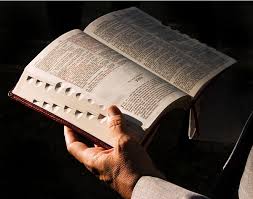
140[1]
London – 6th June 1869
To Mr B
Beloved Brother
I am so glad of news which you give me of Italy. I hope to be able to go there, but God alone knows if and when this will be possible. I very much feared having perhaps to go back to America; however I counted on God and He has put His good hand where the enemy had sought to put things in disarray; and had for a short time.
I propose to go to France, but I also have Germany in view where they complain a little about my prolonged absence. For the moment, I am occupied with the new edition of my New Testament. I am waited on to this end and that holds me back for now. Others can do the corrections at the press, but the verification of all my new notes and little corrections that I have had to do require my care. It could well be that next year, if God preserves my strength, I will go again to Canada and the United States.
Things are good in the West Indies, and they have been encouraged by our visit. I will return to my Italian. F writes to me in this language and I have no difficulty at all in understanding his letters, but to speak is something else. I bless God with all my heart for these meetings in Italy, which I know by repute by means of L F.
As to your journey, dear brother, often a brother who has something is less well-placed than he who has nothing. It is supposed that perhaps he has enough, while another has to be sent. I know of such cases. If I remember well, Mr E sent something that you returned him for a motive that I could perfectly appreciate. I hope that this will not happen a second time. There are very humbling cases of discipline in Switzerland, better this than covert sin, but it is sad, and it must humble those who are not there. However, God is always good and faithful and full of patience towards us, although we are such a poor expression of the life of Jesus. There are two principles of Christian life: that of the Philippians and that of the Ephesians, according to the point of view from which one views the Christian. [In Philippians] he goes through the wilderness, looking towards the glory and pursues it, or rather desires to gain Christ[2]. [In Ephesians] he is seated in the heavenlies[3] and must manifest the character of God as His dear children. What a position! This requires us to do as Paul has done, that one always bears about in the body the dying of the Lord Jesus[4]. This is Christ, God manifested in flesh, who is the perfect expression of it. The first principle gives the grounds which deliver you from what is of this world and of the flesh; the second the communion with the sources of those ways of God in which we must walk, communion with God Himself. Truly, when one sees what the prize of our privileges is, we are small indeed, but while judging ourselves as we must, one must look to Jesus, not to oneself.
I hope that my letter will find your wife perfectly recovered. I will write a word when I get going.
My affectionate salutations to all the brethren
Yours very affectionately
Letter originally written in French, translated by Sosthenes, 2013
Click here for original – If you have any comments on the translation, feel free to let me know.
[1] a different version of this letter also appears in JND’s published Letters – vol 3 p26
[2] See Phil 3: 8,14
[3] See Eph 2: 6
[4] See 2 Cor 4: 10



